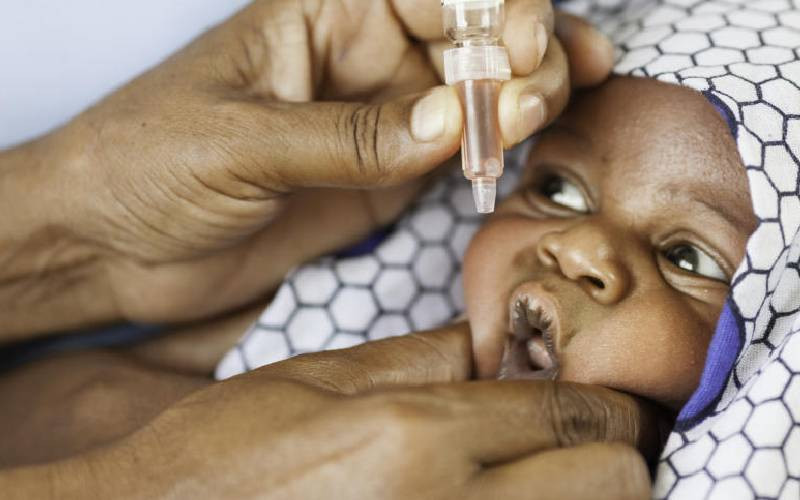A critical vaccine shortage at Kenya’s Central Vaccine Store (CVS) has left over 100,000 children under one year old vulnerable to preventable diseases, severely undermining the country’s immunisation efforts. An official audit has revealed that three essential childhood vaccines BCG, Oral Polio Vaccine (OPV), and Measles-Rubella were out of stock for an average of 65 days during the year ending June 30, 2024.
These stock-outs disrupted scheduled immunisation drives across the country. Healthcare facilities in various regions were forced to turn away caregivers or cancel immunisation days altogether, affecting timely access to vital vaccines and endangering public health.
The shortage was primarily caused by delays in disbursing funds to the national vaccine procurement agency. This directly impacted vaccine distribution across health facilities, violating procurement laws that mandate proper inventory management to ensure uninterrupted services.
BCG protects infants from severe tuberculosis, OPV is critical in maintaining Kenya’s polio-free status, and the measles-rubella vaccine shields children from two highly contagious diseases that can cause permanent disability or death. Interruptions in their availability increase the likelihood of disease outbreaks and can derail hard-won gains in child health.
Kenya has previously recorded significant success in boosting immunisation coverage. Around 80 per cent of children receive all three doses of the diphtheria, pertussis, and tetanus (DPT) vaccine an important measure of immunisation system performance. However, this still falls short of the 90 per cent coverage needed to achieve herd immunity.
In 2023, measles-rubella vaccine coverage declined to 75 per cent in several counties, due to strained public health financing and residual impacts of the pandemic. Marginalised areas such as Turkana, Garissa, and West Pokot continue to lag behind with immunisation rates below 60 per cent, significantly lower than the national average.
Vaccine shortages in Kenya also contributed to a rise in zero-dose children those who received no vaccine at all. The country accounted for 4.7 per cent of such children in Eastern and Southern Africa and 0.9 per cent globally, with the number increasing by 90,000 compared to 2023.
The missed vaccinations have already led to sporadic outbreaks of measles in certain sub-counties, highlighting the urgent need for stable vaccine supply chains. Experts warn that even short delays in immunisation schedules can have fatal consequences for vulnerable children.

